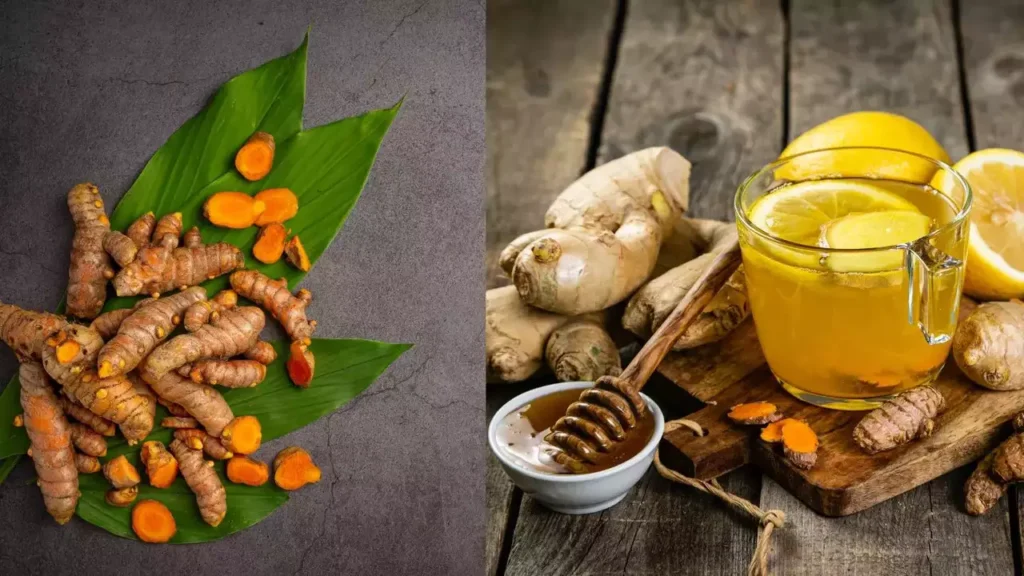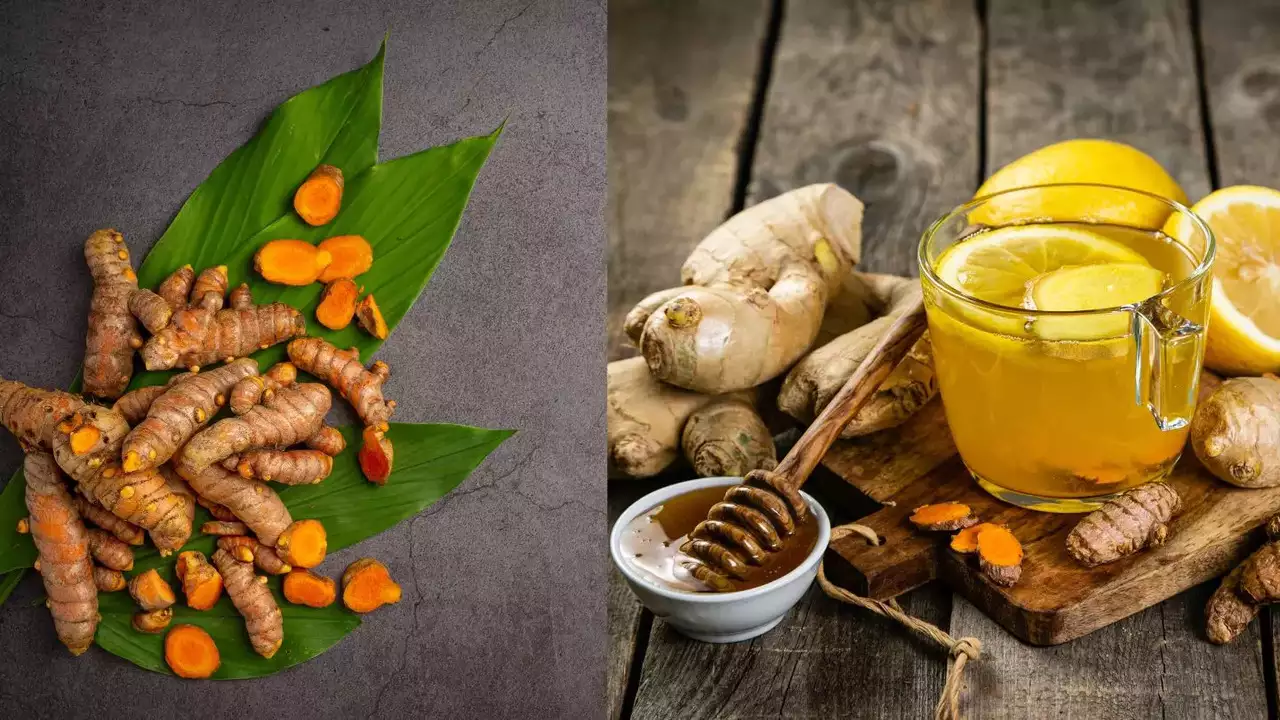Haldi, known as turmeric in English, and ginger are two powerhouse ingredients that have been central to traditional medicine and culinary practices for centuries. Both are celebrated not only for their unique flavors but also for their impressive health benefits and versatility. The rising interest in natural remedies and superfoods has propelled haldi and ginger into the spotlight, leaving many wondering which is better for health and how they compare. Understanding the uses, benefits, and roles of these roots is crucial in making informed choices about their inclusion in your lifestyle.
Turmeric, derived from the plant Curcuma longa, is well-known for its vibrant golden hue and a rich history in Ayurvedic and traditional Chinese medicine. Haldi powder is a staple in kitchens and wellness routines worldwide, thanks to its anti-inflammatory and antioxidant properties. On the other hand, ginger, or Zingiber officinale, often referred to as adrak in English, has been a revered spice and remedy for digestive and respiratory ailments. Ginger health benefits span from relieving nausea to reducing muscle pain, making it a vital ingredient in both traditional and modern remedies.
This article delves deeply into the comparison between haldi and ginger, examining their health benefits, culinary uses, and how they can contribute to overall well-being. With an increasing number of people seeking natural health boosters like gravol ginger or gin gins, understanding the unique strengths of haldi and ginger is essential for integrating them effectively into daily life.

Health Benefits of Haldi (Turmeric)
Turmeric has earned its reputation as a “golden spice” due to its remarkable health properties. The active compound in haldi, curcumin, is a powerful antioxidant and anti-inflammatory agent. Here’s a closer look at what turmeric is good for:
1. Anti-Inflammatory and Pain Relief
Curcumin helps reduce chronic inflammation, a key factor in diseases such as arthritis, heart disease, and diabetes. Studies have shown that turmeric may work as effectively as some anti-inflammatory drugs, without the side effects.
2. Antioxidant Powerhouse
Turmeric fights oxidative stress by neutralizing harmful free radicals in the body. This antioxidant effect not only boosts the immune system but also slows aging and protects against diseases like cancer.
3. Brain Health and Cognitive Function
Emerging research suggests turmeric can improve memory and may reduce the risk of Alzheimer’s disease. Curcumin boosts levels of a brain-derived neurotrophic factor (BDNF), which supports brain health.
4. Improved Digestion
Haldi has been traditionally used for digestive health, soothing the stomach and reducing symptoms of bloating and gas. Its anti-inflammatory properties are particularly useful for those with IBS or Crohn’s disease.
5. Skin and Beauty Benefits
Haldi powder is often used in face masks and skincare routines to brighten the complexion, reduce acne, and combat hyperpigmentation. Its antibacterial and healing properties promote healthier skin.
A Quick Look at the Benefits of Haldi
| Benefit | How It Helps |
|---|---|
| Anti-inflammatory | Reduces arthritis symptoms |
| Antioxidant | Protects against chronic diseases |
| Skin Health | Improves complexion, heals wounds |
| Brain Health | May prevent neurodegenerative diseases |
Health Benefits of Ginger
Ginger, another nutritional marvel, offers a different yet equally potent range of benefits. This spice, often consumed fresh, dried, or in products like gin gins and gravol ginger candies, is rich in compounds like gingerol, which contribute to its medicinal properties.
1. Relief from Nausea and Digestive Issues
Ginger is a go-to remedy for nausea, making it highly beneficial for pregnant women experiencing morning sickness and those undergoing chemotherapy. Gingerol in the spice stimulates digestion and improves gut health.
2. Anti-Inflammatory and Antioxidant Effects
Much like haldi, ginger reduces inflammation and fights oxidative stress. This makes it an excellent remedy for muscle soreness, joint pain, and chronic inflammation-related conditions.
3. Immune System Booster
Ginger tea or honey crystals infused with ginger can help ward off colds, flu, and other infections. The spice’s antiviral and antibacterial properties strengthen immunity naturally.
4. Supports Heart Health
By improving circulation and lowering cholesterol levels, ginger promotes cardiovascular health. It can also help regulate blood sugar levels, reducing the risk of diabetes.
5. Weight Loss and Metabolism
Research suggests that ginger can increase metabolism and promote fat burning, making it a valuable addition to weight-loss diets.
Benefits of Ginger at a Glance
| Benefit | How It Helps |
|---|---|
| Digestive Aid | Relieves nausea and bloating |
| Immune Support | Protects against infections |
| Anti-inflammatory | Reduces joint pain |
| Metabolism Booster | Supports weight loss |
Comparing Haldi and Ginger: Which Is Better?
When it comes to haldi and ginger, both have unique strengths that make them indispensable. The choice between the two often depends on the specific health goal.
| Feature | Haldi (Turmeric) | Ginger |
|---|---|---|
| Active Compound | Curcumin | Gingerol |
| Primary Benefit | Anti-inflammatory, antioxidant | Digestive health, nausea relief |
| Use in Pregnancy | Limited (in large doses) | Highly beneficial for nausea |
| Culinary Use | Curries, teas, golden milk | Teas, soups, candies |
| Growing Requirements | Warm, tropical climates | Thrives in moist soil conditions |
For those looking to target inflammation or chronic diseases, haldi is often the better choice. However, for digestive issues or pregnancy-related nausea, ginger takes the lead.
Culinary and Practical Uses
How to Use Haldi
- Golden Milk: A soothing drink made by mixing turmeric powder, milk, and honey crystals.
- Curries: A staple spice in Indian dishes, adding flavor and health benefits.
- Skincare: Haldi powder is mixed with yogurt for face masks.
How to Use Ginger
- Teas: Ginger tea with lemongrass is a refreshing and medicinal brew.
- Cooking: Adds zest to stir-fries, soups, and marinades.
- Candies: Gin gins or gravol ginger candies are portable and effective for nausea relief.
Both haldi and ginger can be used fresh, powdered, or in supplements, making them incredibly versatile.
Growing Haldi and Ginger at Home
Both haldi and ginger are relatively easy to grow in a home garden.
Growing Turmeric
- Planting: Use fresh turmeric rhizomes in well-drained soil.
- Climate: Requires a warm, humid climate with partial shade.
- Harvesting: Takes 8–10 months to mature.
Growing Ginger
- Planting Ginger Root: Choose a fresh, plump root with visible eyes.
- Climate: Thrives in moist, warm conditions.
- Harvesting: Ready to harvest after 6–8 months.
Conclusion
Haldi (turmeric) and ginger are two natural wonders that offer immense health benefits and versatile uses. While turmeric shines in its anti-inflammatory and antioxidant properties, ginger excels in improving digestion and relieving nausea. Both roots hold significant value in traditional medicine and modern wellness practices, making them essential additions to your kitchen and health routine.
Whether you’re sipping a warm cup of ginger and lemongrass tea or adding a pinch of haldi powder to your curry, these ingredients can transform your health and well-being. By understanding their unique properties, you can harness their benefits effectively. So why choose one when you can incorporate both? Together, haldi and ginger form a powerful duo that supports your journey toward a healthier, more balanced life.









